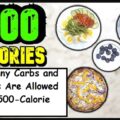No products in the cart.
How to Turn Trash into Cash? It’s no secret that we often overlook waste management. If we paid more attention, we would see how waste, especially inorganic waste, negatively impacts the environment. Unfortunately, many people are still unaware of how to manage waste properly. Most tend to dispose of trash in rivers, drains, or public places, which is a real shame.
Today, let’s discuss waste management, particularly how to turn organic waste into compost. If you have vacant land, you can use organic compost for vegetables. Even with limited space, you can still engage in farming through methods like vertical gardening or hydroponics. There are many ways to cultivate crops, so there is no excuse for littering anymore.
As mentioned earlier, waste generally falls into two categories: organic and inorganic. Organic waste includes materials that decompose easily, like vegetables and animal manure. In contrast, inorganic waste consists of non-biodegradable items like glass bottles and plastics.
How to Properly Utilize Waste?
Before disposing of or converting waste into other products, you must first separate it. Divide waste into organic and inorganic categories. This simple step is often overlooked by many people, but it isn’t difficult to do.
In Japan, waste management is incredibly organized. They separate inorganic waste into dozens of different types and process each accordingly. Impressive, right?
Let’s start simple and adopt some basic waste management practices:
Utilizing Organic Waste
You can convert organic waste into liquid fertilizer and compost. Making compost is very easy and inexpensive. You can create compost directly by using bio pore holes in the soil.
However, using a composter yields better results. You can buy one from an agricultural store if you don’t want to make one yourself. To produce liquid fertilizer, you need to ferment the waste first. We’ve discussed this before, and this liquid fertilizer can also serve as a pest repellent or MOL (Microorganism Local).
Utilizing Inorganic Waste
You can repurpose inorganic waste into various useful items, such as planting containers for your organic garden. For example, you can create a hanging garden using old plastic water bottles. It’s very easy! You can also use these bottles as watering tools, seed storage, grafting containers, liquid fertilizer sprayers, or irrigation systems.
Once you’ve gathered enough plastic waste, you can sell it to plastic waste auction centers. Although it might not yield a huge profit, it’s quite decent if you just want to keep your kitchen running. Recently, the plastic pellet processing business has been booming. You could turn this method into a new business opportunity.
By implementing these simple steps, you contribute to reducing the environmental impact of waste. Besides keeping things clean, you can gain tremendous benefits from proper waste management, including money, food, beauty, and even electricity, as seen in Surabaya. There are many more advantages as well.
Unfortunately, the government rarely promotes proper waste management on a large scale. If managed well, we could become a more advanced and cleaner society.
0
Shares
Viona Armily
Viona Armily is a wandering vanlifer with a passion for writing about everything she encounters on her adventures. A true coffee enthusiast, hiking lover, bowling, and food addict, Viona captures the essence of her travels and experiences with a unique and engaging perspective. Whether she's exploring new trails, savoring local cuisines, or sharing her latest bowling victories, her writing reflects her zest for life and her love for discovering and documenting the world around her.










Leave a Reply